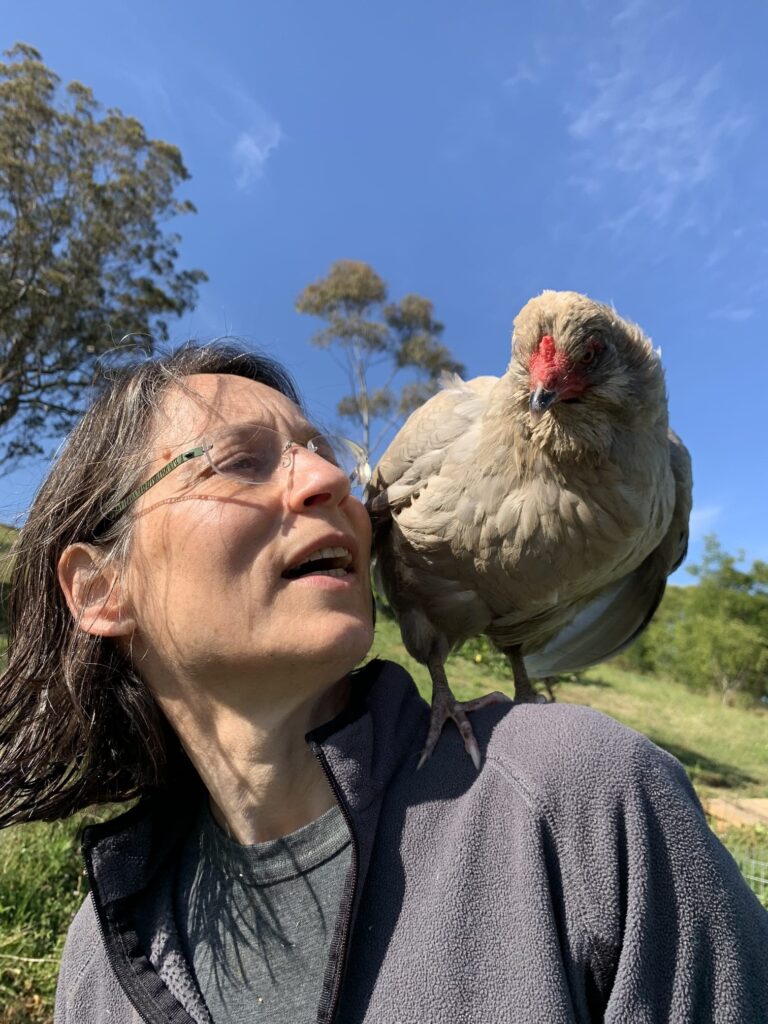Prof Ruth Zadoks – A True Interdisciplinary Scientist of Production Animal Health
By Mingan Choct

The challenges faced by animal agriculture are becoming more complex, coming to a point where a single discipline approach is no longer adequate.
At the Poultry Research Foundation (PRF) of The University of Sydney, we are fortunate to have Professor Ruth Zadoks who works across different disciplines and different animal species.
Professor Zadoks is a veterinarian, molecular epidemiologist, researcher, and lecturer at the Sydney School of Veterinary Science. Ruth also leads the Infectious Disease Laboratory on the Camden Campus, where many PRF stalwarts and rising stars are based. She completed her DVM with an intercalated Masters in Veterinary Research (with fieldwork conducted in Zimbabwe), and subsequently a Masters in Veterinary Epidemiology and Animal Health Economics as well as a PhD at Utrecht University in The Netherlands.
International and interdisciplinary work have since become key themes in her career, which has taken her from Utrecht University to Cornell University in the USA, the Universities of Edinburgh and Glasgow in Scotland, and, in 2019, to the University of Sydney, with projects and PhD students straddling 6 continents. Having grown up in Wageningen, renowned for its Agricultural University and its Animal Sciences, and studied in Utrecht, similarly renowned for its Veterinary Sciences, she is keen to straddle the two disciplines and to understand how animal husbandry can contribute to occurrence or, conversely, control of diseases in animals and the humans that look after them or derive their livelihoods and nutrition from them.
Ruth’s main scientific interest is the epidemiology of infectious diseases. When she first started approaching epidemiology, the science of disease transmission, from a molecular rather than a mathematical perspective, she was told that “epidemiologists don’t hold pipettes” and “lab people cannot be epidemiologists”. Many years and publications later, including a role as Professor of Molecular Epidemiology, she continues to use laboratory methods to understand how diseases caused by bacteria, viruses or parasites spread in production animal populations, and how diagnostics, vaccines or management interventions can help to control them.
The breadth of her experience and approach is reflected in her teaching, which covers all 4 years of the DVM curriculum, starting with the role of animal production in a global context, continuing with specific infectious disease topics and veterinary public health more broadly, and culminating in coordination of the final year Public, Industry, and Community placement, which provides students an opportunity to explore non-traditional veterinary roles, including those in veterinary consulting, policy making, pharma companies, diagnostic laboratories, and intensive animal industries. Whilst Ruth has worked extensively across bacterial infectious diseases of ruminants, fish and humans, her work on poultry had, until recently, been limited to investigations of the major foodborne pathogens, Salmonella and Campylobacter, in indigenous and broiler production systems in Tanzania. Now, she is a program lead in the Agrifutures Chicken Meat-funded Consortium on Sustainable Precision Feeding in Broiler Chickens and supports a range of projects from PRF members in the Infectious Disease Laboratory, from infectious bronchitis virus to the gut microbiome, food safety, DNA-based feather sexing, and insulin-ELISA. She is grateful to the enthusiasm and welcoming spirit of her many colleagues in PRF and the Consortium, and keen to support them in contributing to the success and sustainability of the Australian poultry industry.
Latest news
Our events
- Final Chance to Register for APSS 2026 – Less than 3 Weeks Away!With just under 3 weeks until APSS 2026, now is your last opportunity to finalise your registration for this year’s premier poultry science event.
Connect with us:


